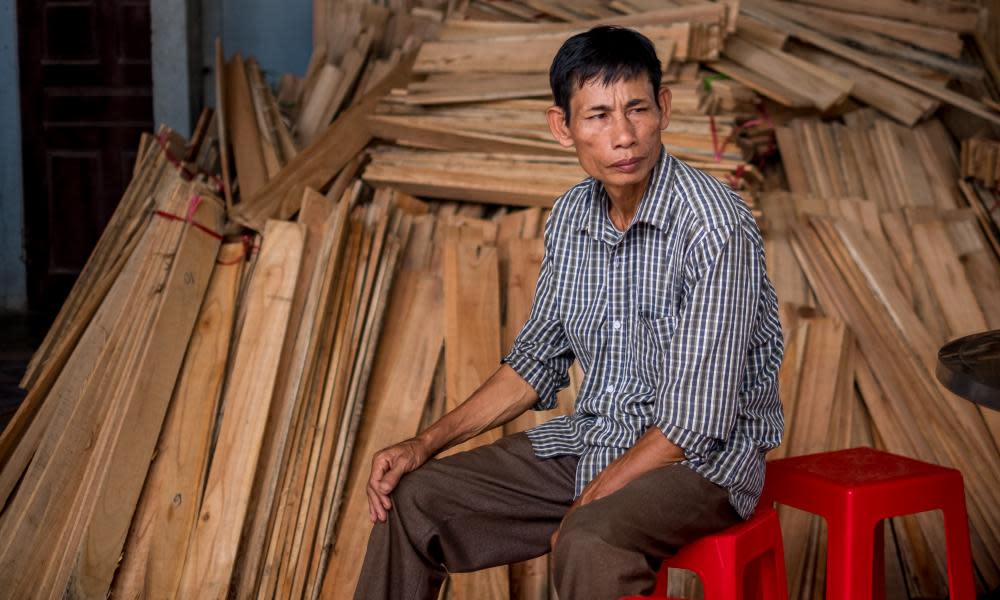Vietnamese families struggle to repatriate Essex lorry victims

The families of the 39 Vietnamese people found dead in a refrigerated lorry in Essex last month are facing financial difficulties over repatriating the bodies of their relatives.
Bui Huy Cuong, the deputy chairman of Can Loc district’s people’s committee in Ha Tinh province, where 10 of the victims are from, said local officials visited families and encouraged them to receive ashes instead of bodies, but “there was unofficial and incorrect information online saying that the British government will cover all costs [of bringing the bodies back to Vietnam]”, leading to confusion.
Cuong said seven families had signed a form agreeing to receive the bodies as ashes, but later withdrew their consent.
“At the moment, we are not sure if the British or the Vietnamese government will take responsibility for bringing victims back to Vietnam,” Cuong said. “Families know nothing about it. It should be clear soon who [which government] will take responsibility … How much can British and Vietnamese governments pay and how much will Vietnamese families need to contribute?”
The family of Pham Thi Tra My, 26, who texted her mother saying: “I’m sorry Mum … I’m dying because I can’t breathe,” said they did not know how to get her body home. Her brother Pham Manh Cuong said they would prefer to receive her body rather than ashes.
“My family wishes to bring my older sister’s body back home because we all agreed we want to see her for the last time,” he said. “If they do not pay for the transportation fee, and we have to pay the fee, we have to accept my sister’s ashes in Vietnam, because we are in a very difficult position.”
Nguyen Dinh Gia, the father of the victim Nguyen Dinh Luong, from Nghe An province, said his family “expressed our wish to bring my son’s body back home right after receiving the news [of his death]”.
He said the families had spoken to each other and said they wanted to bring the victims back as bodies, but then “local authorities came and said that the Vietnamese government [has] worked with the British government and the Vietnamese government said it was not possible to bring bodies back, only ashes”.
He said local authorities asked him to sign documents agreeing to victims being brought back as ashes, but that villagers did not understand the information.
“They did not tell me how much the transport fee is, but told us it’s costly to bring the body back, so it’s easier to bring back ashes instead of the body. I said we are asking for help from two governments to facilitate my son’s body being brought back home. We’ve had to wait for many days now and are falling into depression.”
There has been little coverage of the repatriations in Vietnamese media since a government official was cited last Friday saying the bodies were expected to be brought back last weekend.
The government clamped down on coverage after foreign journalists travelled to central provinces to speak to victims’ families. Last week, a blogger on Radio Free Asia revealed how Vietnam’s propaganda department wrote to newspaper editors asking them to “not report on identities or situations of families with suspected bereavement”.
Many online commenters have questioned how families could afford to pay the near-£30,000 for their relatives to migrate to the UK. However, many of the families, who are from one of the poorest regions of Vietnam, have built up crippling debt to try to fund a better life for their relatives.
Nghe An and Ha Tinh provinces, where the majority of victims are from, are a hotspot for human trafficking, according to the Blue Dragon Children’s Foundation, which rescues trafficked people from China.
Michael Brosowski, the organisation’s founder, said that “in Vietnamese culture, honouring the dead is at least as important as honouring the living. Families traditionally hold ceremonies for death anniversaries; they are very important occasions and much more important than birthdays.”
“So for families who lost children, brothers and sisters in this tragedy, the return of their loved ones is a significant matter and will impact how whole families deal with their trauma. I sincerely hope that the UK government and the families can reach a resolution soon,” he said.

 Yahoo News
Yahoo News 
